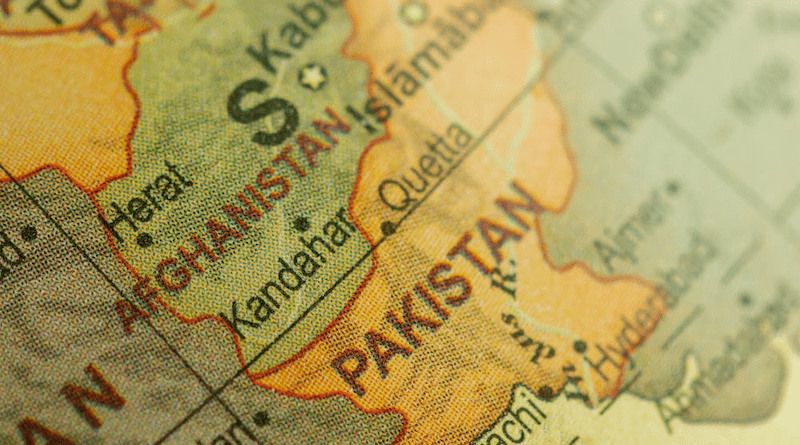Pakistan’s Economic Potential Under SIFC – OpEd
Pakistan’s economy has seen various phases in the last few years. Thanks to the civil-military cooperation for avoiding the threat of default. While the immediate threat of default has been averted, much remains to be addressed. The current political stability, compared to previous administrations, is noteworthy during this interim setup.
Economists Daron Acemoglu and James A. Robinson, in their book ‘Why Nations Fail,’ point to countries like China, South Korea under General Park Chung Hee, and Singapore under Lee Kuan Yew, where economic progress occurred without fully functional democratic institutions. In contrast, many democratically ruled nations, including Pakistan, struggle to meet modern economic standards due to issues such as political instability, red tape, unskilled labor, bureaucratic inertia, corruption, and challenges in enforcing contractual rights.
The Special Investment facilitation Council (SIFC), with its high-powered executive body, aims to address these challenges. It is expected to streamline processes, making it easier for investors to establish businesses. Committees within the SIFC have been meticulously formed to ensure the seamless implementation of goals. Despite the enactment of the 18th Amendment in 2010, the desired results have not materialized. Heavy borrowing by the federal government, with 60% of tax receipts going to provinces, has led to the need for fiscal prudence. The SIFC’s goal of boosting foreign direct investment (FDI) requires restoring investor confidence in Pakistan.
Recent stringent measures, including crackdowns on hoarding and smuggling, have yielded positive results. Investor confidence, reflected in the performance of the Pakistan Stock Exchange post-SIFC formation, suggests a positive trajectory.
The SIFC prioritizes agriculture, aiming to capitalize on Pakistan’s vast cultivable land through corporate farming. This approach not only ensures food security but also positions Pakistan to export surplus produce to new markets like Mexico and Russia, contributing positively to GDP. In the IT sector, the SIFC’s initiatives, such as allowing IT companies to retain a portion of foreign exchange proceeds, are expected to enhance IT receipts. Efforts to bring in international payment gateways like PayPal and Stripe will further boost the freelancing community and foreign remittances.
The SIFC’s focus on the energy sector is set to increase FDI, with an emphasis on renewable and corporate farming to address energy challenges. Mines and mineral development under the SIFC are expected to attract foreign investment, particularly in lithium, given the global demand driven by the popularity of electric vehicles. The military’s role in the SIFC is seen positively by foreign investors, addressing concerns about law and order. Economic growth is anticipated to create fiscal space for investments in education, healthcare, and other social sectors, fostering informed decision-making among the population.
The SIFC’s active involvement in economic decision-making, coupled with an effective implementation mechanism and a sense of collective responsibility, is expected to strengthen Pakistan’s political and democratic institutions over time. The SIFC has emerged as a key player in shaping Pakistan’s economic landscape. Its active participation in economic decision-making, combined with a robust implementation mechanism and a commitment to collective responsibility, holds the promise of not only revitalizing the nation’s economy but also strengthening its political and democratic institutions over time.
At the heart of the SIFC’s impact lies its proactive role in economic decision-making. It has also proven instrumental in formulating and executing policies critical to economic growth. By engaging in strategic decision-making, the SIFC demonstrates a commitment to steering Pakistan away from economic uncertainties and challenges. This involvement extends beyond mere policy formulation; it encompasses a hands-on approach to addressing the intricate economic issues that have hindered the nation’s progress.
Equally significant is the SIFC’s effective implementation mechanism. Decision-making alone is insufficient without a robust plan for translating policies into tangible actions. The SIFC, recognizing this imperative, has instituted meticulous committees and frameworks aimed at ensuring the seamless execution of its goals. This commitment to implementation is a departure from traditional bureaucratic inertia, where well-intentioned policies often falter in the face of administrative challenges. The SIFC’s proactive stance towards implementation sets a precedent for efficiency and effectiveness in governance.
Perhaps most notable is the SIFC’s emphasis on a sense of collective responsibility. In a landscape often marred by political polarization, the SIFC stands out as a beacon of collaboration. By fostering an environment where diverse stakeholders come together with a shared commitment to Pakistan’s economic well-being, the SIFC transcends partisan divides. This approach is crucial not only for economic progress but also for nurturing a culture of cooperation that can permeate into the broader political sphere.
The anticipated impact of the SIFC extends beyond the economic realm to the very foundations of Pakistan’s political and democratic institutions. Historically, economic stability and political resilience have been intertwined. As the SIFC works towards bolstering the economy, the positive ripple effects on the political landscape are expected to be profound. A thriving economy, marked by sustainable growth and job creation, instills a sense of stability and optimism among citizens. This, in turn, can translate into increased trust in democratic institutions. A confident and economically empowered populace is more likely to actively engage in the democratic process, reinforcing the legitimacy of political structures.
Furthermore, the SIFC’s commitment to transparency and efficiency in economic decision-making sets a precedent for good governance. As citizens witness the tangible results of effective policies and their seamless implementation, expectations for similar standards in political governance naturally rise. The SIFC, by exemplifying a model of governance that prioritizes results and accountability, contributes to a broader cultural shift towards more robust democratic practices.
In conclusion, the SIFC’s active involvement in economic decision-making, coupled with an effective implementation mechanism and a commitment to collective responsibility, is poised to be a catalyst for positive change in Pakistan. Beyond its immediate economic impact, the SIFC has the potential to fortify the political and democratic foundations of the nation. As the cell continues to navigate the complex landscape of economic challenges, its role in shaping a more resilient and vibrant Pakistan becomes increasingly evident.

